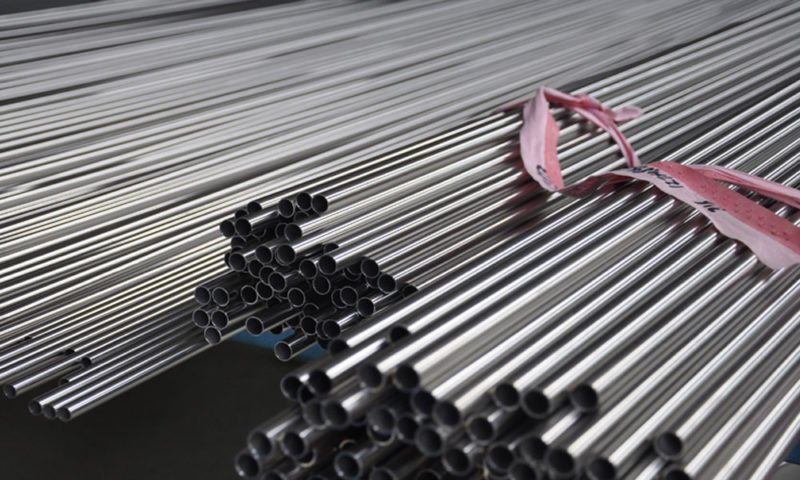Stainless steel instrumentation tubes play a crucial role in controlling and measuring flow, pressure, and temperature in critical industrial systems. Among the various materials available, SS 304 Instrumentation Tube stands out for its excellent corrosion resistance, mechanical strength, and long-term durability. These tubes are widely used in industries such as petrochemical, oil & gas, pharmaceuticals, power generation, and water treatment for precise instrumentation and control processes.
What is SS 304 Instrumentation Tube?
SS 304 Instrumentation Tubes are seamless or welded stainless steel tubes manufactured from 304-grade stainless steel. This grade is an austenitic chromium-nickel alloy known for its exceptional corrosion resistance, good formability, and excellent weldability. These characteristics make SS 304 the most commonly used material for instrumentation tubing, capable of handling both high and low-temperature applications.
The tubes are typically designed to transport gases, fluids, or chemicals with high precision, ensuring system integrity and reliability. They are available in a variety of sizes and wall thicknesses, depending on the required pressure rating and operating environment.
Key Properties of SS 304 Instrumentation Tube
The popularity of SS 304 instrumentation tubes stems from their outstanding technical and physical properties:
-
Corrosion Resistance: Excellent resistance to oxidation and corrosion in various atmospheric conditions and chemical environments.
-
High Strength: Provides mechanical stability even in high-pressure and high-temperature operations.
-
Weldability: Can be easily welded using standard methods without requiring post-weld heat treatment.
-
Temperature Tolerance: Performs effectively in both cryogenic and elevated temperature environments.
-
Smooth Surface Finish: Reduces frictional losses and contamination, ensuring cleaner operations in sensitive systems.
Manufacturing Standards and Specifications
Manufacturers produce SS 304 instrumentation tubes in compliance with international standards such as:
-
ASTM A213 / A269 / A249 – For seamless and welded stainless steel tubes.
-
DIN EN 10216-5 / EN 10217-7 – For high-pressure and corrosion-resistant applications.
-
ASME SA213 / SA269 – For boiler, heat exchanger, and instrumentation purposes.
These standards ensure consistent performance, dimensional accuracy, and reliability under demanding industrial conditions.
Applications of SS 304 Instrumentation Tube
SS 304 instrumentation tubes are indispensable in industries that require precise control of fluid systems. Some common applications include:
-
Oil and Gas Processing: Used for hydraulic control lines and gas transmission systems.
-
Chemical and Petrochemical Plants: Suitable for conveying corrosive fluids and maintaining purity.
-
Pharmaceutical Industry: Ensures contamination-free transfer in sterile environments.
-
Power Generation: Used in turbine control systems and heat exchangers.
-
Water Treatment Systems: Ideal for desalination and water purification plants due to its corrosion resistance.
-
Instrumentation and Control Systems: Provides accurate transmission of pressure and temperature signals.
Advantages of Using SS 304 Instrumentation Tube
-
Long Service Life: Resistant to wear, corrosion, and environmental damage.
-
Low Maintenance: Requires minimal upkeep, reducing downtime and costs.
-
High Precision: Ensures leak-free performance in critical applications.
-
Versatility: Suitable for multiple industries and compatible with various fittings and connectors.
-
Eco-Friendly: Fully recyclable material, contributing to sustainable industrial practices.
Choosing the Right SS 304 Instrumentation Tube
Selecting the right tube depends on factors such as pressure rating, operating temperature, fluid type, and environmental conditions. Always choose tubes that meet relevant international standards and have undergone rigorous quality testing, including hydrostatic and eddy current testing, to ensure performance and reliability.
Conclusion
SS 304 Instrumentation Tube represents the ideal combination of strength, precision, and corrosion resistance for modern industrial systems. Its ability to perform reliably under extreme conditions makes it a preferred choice across industries where precision and safety are critical. With the right specifications and quality standards, SS 304 instrumentation tubes ensure long-lasting, efficient, and accurate performance in all instrumentation and control applications.





